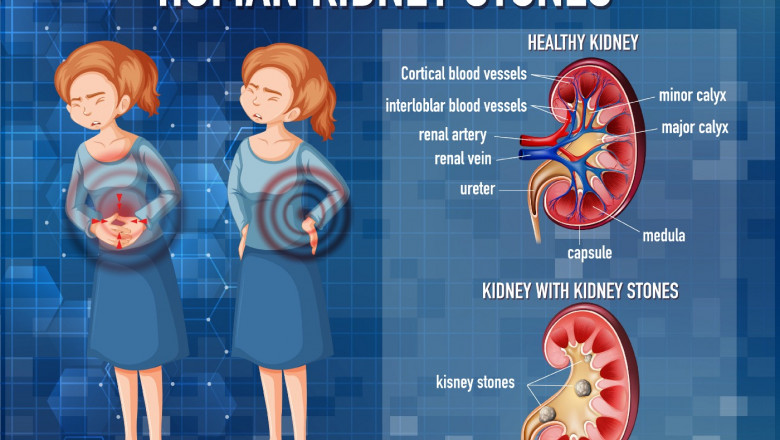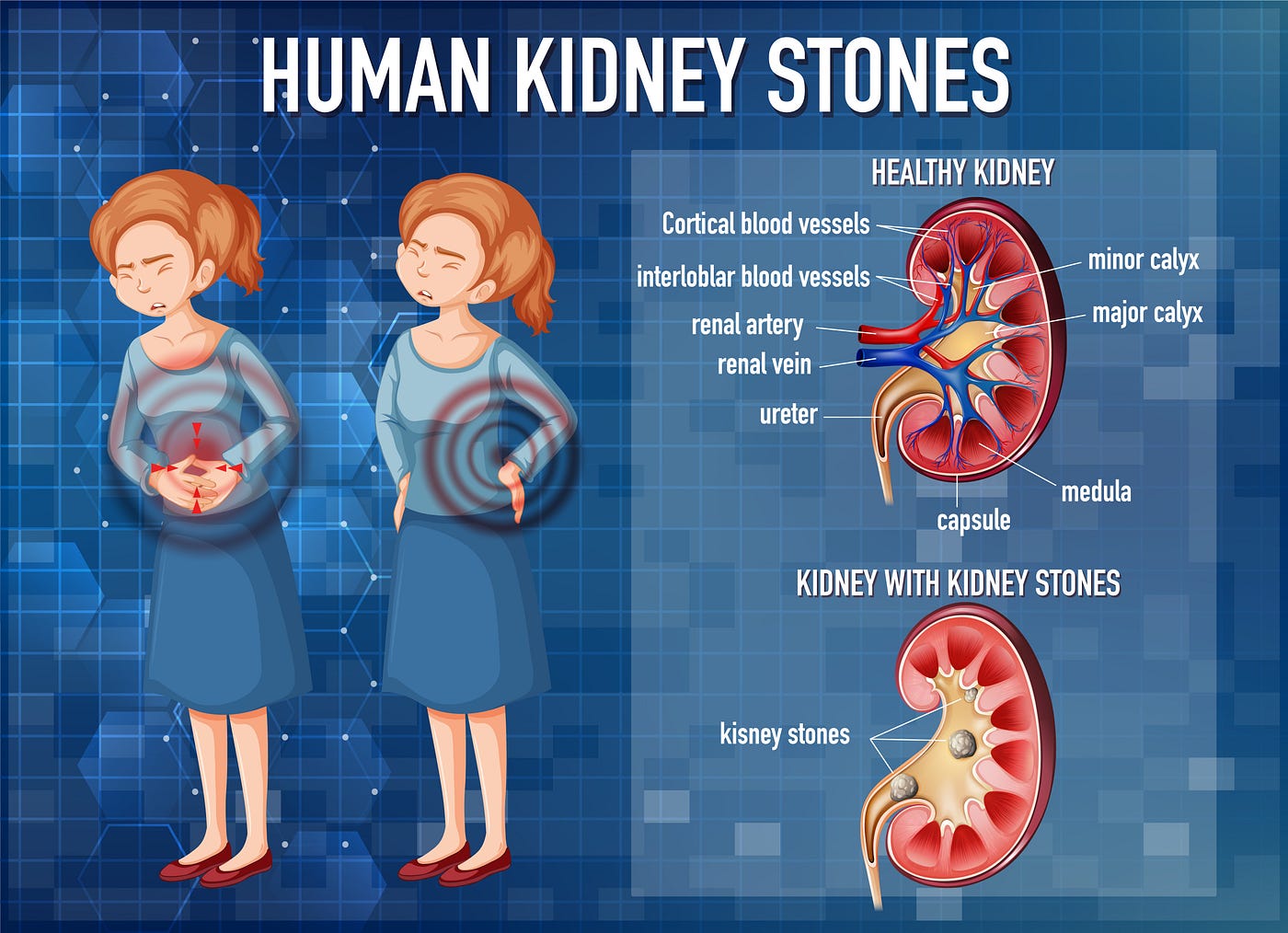views


Kidney stones are notoriously difficult to pass and have a habit of becoming stuck in the process. Kidney stones can get stuck due to characteristics such as shape, size, or uneven nature. Other times, kidney stones become lodged in our urinary tract due to natural shrinking.
The concentration of today’s discussion will be on identifying the locations where kidney stones are most likely to get stuck. Sometimes it doesn’t even realize that you have the one due to the smaller size. But watch out for larger ones, they increase the chances of the blockage.
Fortunately, when a kidney stone gets stuck, it is only for a short time. Even if it is only for a short time, it is required to keep the kidney stone moving.
Kidney stones can develop in either one or in both kidneys. They may then pass into the ureter, the tube that connects the kidney to the bladder. Small kidney stones frequently pass through without any problem and may not cause symptoms.
How to Pass Kidney Stones?
The location of the kidney stone also affects whether or not it can be passed naturally. Some kidney stones form in the kidney, whereas others form in the ureter. Kidney stones can only pass through the urine. Smaller stones (less than 5mm) usually pass easily.
Larger stones will almost always necessitate medical attention. They can become lodged in the ureter, causing pain. They may cause complications such as infection and kidney damage if not removed. Several factors can influence how quickly a kidney stone passes. The length of time it takes to pass a kidney stone differs depending on its size and location.
How do you accelerate the process of passing stones?
Drinking plenty of water is the best way to aid in the passage of a kidney stone. The extra fluid encourages urination, which aids in the movement of the stone.
A person can also take precautions to avoid new stones from forming and existing ones from growing larger. These steps are as follows:
- Limiting protein consumption
- Lowering calcium intake
- Less salt consumption
- Consuming more citrus fruits
Citrus fruits contain the chemical citrate, which aids in the prevention of kidney stone formation. Dietitians and doctors can also recommend diet plans for kidney stone treatment.
Can kidney stones cause kidney failure?
In some cases, your doctor may advise immediate surgical removal without a waiting period. This is usually due to a stone that is too large to pass naturally (larger than 6 mm) or is blocking urine flow. If the stone obstructs the flow of urine, it can cause infection or kidney failure.
However, you can pass a kidney stone (up to 9mm) naturally if you are vigilant about looking for signs of trouble and prepare yourself for success by engaging in the activities. Remember that while you may experience pain at times, it will most likely be temporary. However, pay attention to your body.
The Bottom-line
To avoid kidney stones, try to live a healthy lifestyle and take care of your urinary health. Simple steps can be taken to keep your urinary health in tip-top shape.
Kidney stones can be treated through various methods. Drug therapies aim to relieve pain and discomfort while also allowing the stone to pass more easily.
I would recommend Kidney C.O.P.®; it is a patented dietary supplement that helps reduce the formation of kidney stones. It is 99% effective against kidney stone growth. It even benefits the overall health of kidneys.
Have healthy days ahead!!












